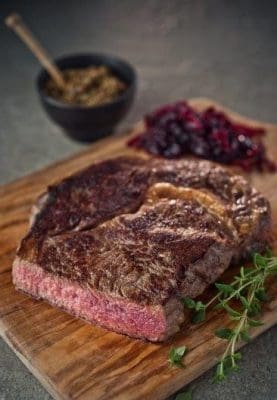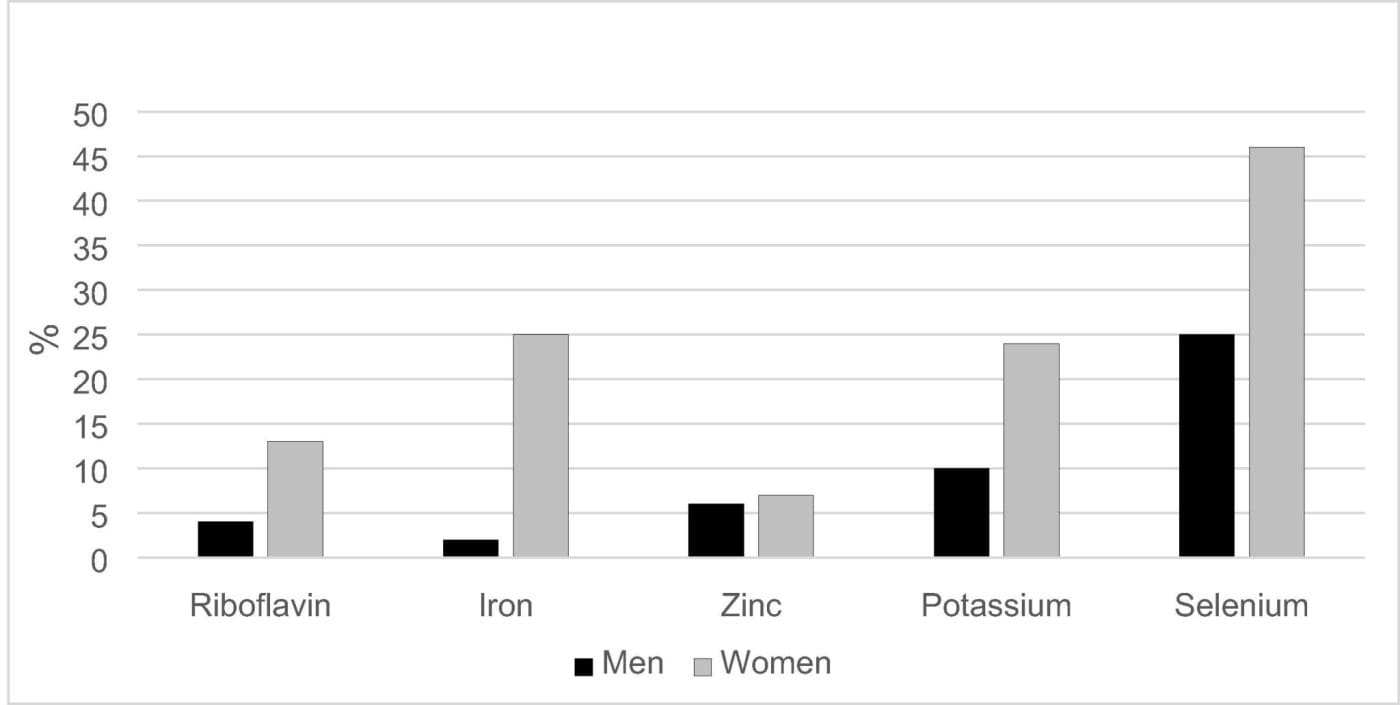 The review, published earlier this month in the international journal of animal biosciences, says red meat is a nutrient-dense food that has been a critical part of human diets for millennia, and contributed to the evolutionary development of the human brain.
The review, published earlier this month in the international journal of animal biosciences, says red meat is a nutrient-dense food that has been a critical part of human diets for millennia, and contributed to the evolutionary development of the human brain.
However, in today’s “often polarised debate”, the nutritional value of red meat is often overlooked or forgotten.
Since the start of the new millennium red meat had become the main dietary target of climate campaigners aiming to minimise the impact of humankind on the environment by persuading millions to adopt plant-based or vegan diets.
Despite this, scientific evidence showed that red meat is a source of high-quality protein, micronutrients and essential fatty acids.
“While individuals may benefit from avoiding excessive meat consumption or choosing less processed meats, embracing a diet devoid of animal foods is not risk-free from a nutrition or health perspective.”
The researchers also noted that nutritional risks of meat-free diets were “rarely acknowledged” and said should be further studied.
They also concluded that as long as nutrient intakes remain adequate for health, it should be up to personal choice to determine whether or not red meat is included in the diet.
Evidence supporting red meat in healthy diets
The authors said the available evidence demonstrates that red meat is nutrient dense and makes an important contribution to adults’ diets.
Raw red muscle meat typically contains 20-25g of protein per 100g.
 However, cooking increases the protein density to 28-36g per 100g due to a water loss of around 30 percent.
However, cooking increases the protein density to 28-36g per 100g due to a water loss of around 30 percent.
The digestibility of the protein in meat is remarkably high at around 94 percent, significantly surpassing the digestibility of beans at 78pc and whole wheat at 86pc.
Additionally, meat protein supplies all nine essential amino acids.
Vitamin B12, of which red meat is a uniquely valuable nutritional source, played vital metabolic roles throughout a person’s life, with special importance during pregnancy and early development (the initial 1 000 days of life).
Current evidence linked a deficiency in vitamin B12 to an increased susceptibility to a range of neurological, vascular, immune, and inflammatory disorders.
Studies also underscored the importance of red meat consumption in maintaining iron status, particularly for pre-menopausal women who have the highest daily iron requirements as a consequence of menstruation.
Research also highlighted the essential role of red meat consumption in bolstering both iron and zinc bioavailability, making it a valuable dietary choice for individuals seeking to optimise micronutrient absorption and maintain overall health.
Nutrition and health claims
Strict guidelines govern the use of nutrition and health claims in commercial communications for foodstuffs in the UK and Europe, the study noted.
Within these strict parameters, authorised nutrition claims that can be made specifically for beef according to the scientific evidence is that it is rich in Niacin, vitamins B6 and B12, zinc; a source of Iron, potassium, phosphorus, riboflavin; while also being high in protein and naturally low in sodium.
Numerous authorised health claims that can be made for red meat included:
- Growth and maintenance of muscle mass,
- Maintenance of normal bones,
- Immunity support,
- Energy-yielding metabolism,
- Reduction of tiredness and fatigue,
- Normal mental function,
- Maintenance of normal skin,
- Maintenance of normal hair and nails,
- Maintenance of normal vision
- Supports the normal formation of red blood cell, and
- Fertility and reproduction.
Despite benefits, red meat consumption in UK declining
Despite the evidence supporting the role of red meat in healthy diets, the study noted that red meat consumption in the UK is declining.
According to the UK’s National Diet and Nutrition Survey (NDNS), since 2008, mean consumption of red meat has reduced by 13g/day, 23g/day and 19g/day for those aged 11-18 years, 19-64 years and ≥65 years respectively, with women eating significantly less red and processed meat than men.
Research is also showing that adolescents and some adults in the UK have inadequate intakes of several nutrients found in red meat.
The authors noted that the potential risks associated with high red meat consumption in relation to chronic diseases have garnered significant attention, but these were largely based on observational studies which were vulnerable to confounding from other diet and lifestyle factors that influence disease risk.
“For example, high red meat intakes are associated with low intakes of fruits, whole grains and nuts, and high oil intakes of oil which would be expected to influence disease risk.”
They also noted that while some recent systematic reviews and meta-analyses, based on observational data, had reported positive associations between higher red and processed meat consumption and cancer incidence, CVD and type 2 diabetes, similar analyses had reported clinically insignificant associations with chronic disease risks or clear differences between the risks attributed to lean versus processed meats or between meat subtypes.
“In a systematic review and meta-regression, unprocessed red meat had a weak association with colorectal cancer, breast cancer, type 2 diabetes and ischaemic heart disease, and no association with ischaemic stroke or haemorrhagic stroke.”
The review also noted that vegan diets may pose challenges for older adults in terms of muscle mass and strength preservation.
Animal-based proteins tend to have superior protein quality and anabolic potential, specifically for whole-body anabolic efficiency, compared with plant-based proteins.
Further study of meat-free diets needed
The review concluded that a wholesale shift to plant-based diets may not benefit adults who are vulnerable to sub-optimal nutrient intakes, such as women of child-bearing age and the elderly, and called for further study.
“Future research should reduce confounding and bias by testing lean red meats within a balanced diet against meat-free diets to determine benefits and risks.”
The link to the review in the animal journal can be found here


HAVE YOUR SAY